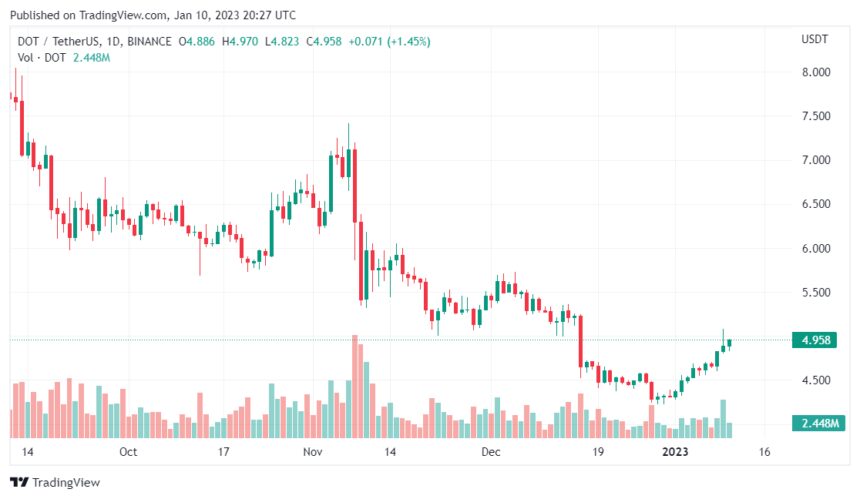Polkadot provides interoperability among several blockchains for users while maintaining high scalability and speed in processing transactions. Also known as a multichain network, Polkadot supports many parachains, enabling developers to build their blockchains seamlessly.
Several blockchain projects exist in the decentralized finance (DeFi) sector. These platforms usually emerge with different products and services related to cryptocurrency and blockchain technology. Subsequently, users became intrigued with the full potential packed in the DeFi space.
However, there was the challenge of how a user could access more than one blockchain and DeFi application through a single platform. This is where the value proposition of the Polkadot became prominent.
The last few months in 2022 were tough in the crypto market as most crypto assets and projects saw a drastic drop in performance. In addition, the unexpected collapse of the FTX crypto exchange brought a devastating condition that created losses in the crypto space.
However, DOT has a positive story to tell. The multichain network reports massive growth in its ecosystem during Q4 2022.
1/ The Polkadot 2022 Roundup is here🚀
Despite the difficult year for the industry, the Polkadot and Kusama community were busy building the largest, & most diverse ecosystem of use case specific layer-1 blockchains in the world, making huge strides toward building a better web. pic.twitter.com/sGZDz0zHIW
— Polkadot (@Polkadot) December 31, 2022
The recent achievement cuts across several landmarks and aspects. Notably, the protocol and its projects progressed technically with many collaborative deals and more technological adoption.
Parachain Migration From Kusama To Polkadot
On Oct 3, 2022, Polkadot recorded its first successful parachain migration from its canary network, Kusama. KILT Protocol completed a full migration from the Kusama Relay Chain to Polkadot Relay Chain.
This milestone showcases Kusama as a suitable platform to stress-test digital applications in a real-life environment. Hence, the developers could curb associated risks before all the relevant upgrades to ensure stability and security.
By using Kusama before its migration, KILT Protocol achieved decentralization. Also, the protocol included new functionalities in its upgrade, spiking its utility and efficiency. Through its collaboration with Polkadot, KILT…
Click Here to Read the Full Original Article at NewsBTC…
























